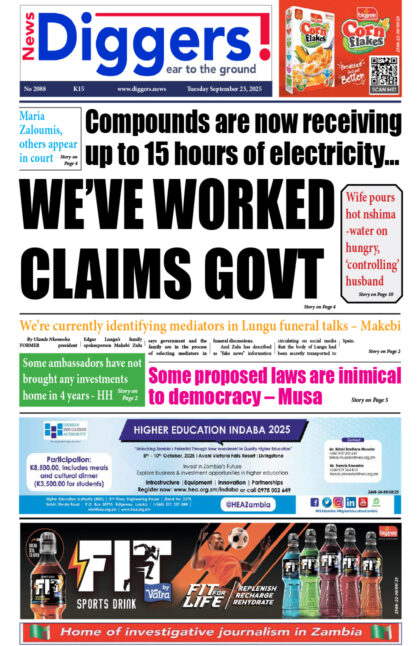Former National Energy Sector and Allied Workers Union (NESAWU) general secretary Yotam Mtayachalo says the 75 per cent increase in electricity tariffs will compromise the quality of life for many Zambians.
Mtayachalo, who is also FDD Copperbelt province Chairman, called on President Edgar Lungu to intervene in the hiked electricity tariffs, arguing that Zambians were already overwhelmed with the high cost of living.
“I want to take this opportunity to appeal to President Edgar Lungu to reconsider governments’ move to increase electricity tariffs by 75 percent because the move has compromised the quality of life for the majority Zambians. It is a well known fact that the move by ERB to announce a 75 per cent rise in the residential electricity tariffs has not been well received by the majority of the residents on the Copperbelt and I believe that this is similar even in other provinces going by the trending public opinion over the matter,” Mtayachalo said.
“I think it is important that the President is told the truth. Those who tell him that ‘boss everything is going’ well are not telling the truth neither do they mean well to the President.”
He said the 75 per cent tariff hike was unsustainable and just too much on the shoulders of many Zambians to be implemented within a period of four months.
“It must be realised that the majority of Zambians are not against ZESCO to adjust electricity tariffs upwards because they know that ZESCO is equally affected by the high economic environment prevailing in the country. However, the 75 per cent to be implemented in four months is too much and unsustainable for the majority Zambians. Therefore, the government must listen to the cries of the people because Zambians are already overwhelmed with the cost of living,” said Mtayachalo.
“While attaining a cost reflective tariff regime may promote investment in the power generation sector, I find no legitimate reason to rush into implementing the 75 per cent hike in electricity tariffs because Kafue Gorge and Kariba North Bank hydro power stations respectively, if they operate on full capacity both have an installed generation capacity of 2070 mega watts of electricity against the national demand of 1,960 mega watts which includes the mining industries. Then also the power coming from the Victoria Falls, Itezhi tezhi and these other mini hydro power stations can be available for export. Furthermore, investment in power generation is a long term investment, so implementing the cost reflective regime at a supersonic speed can not be justified.”
























